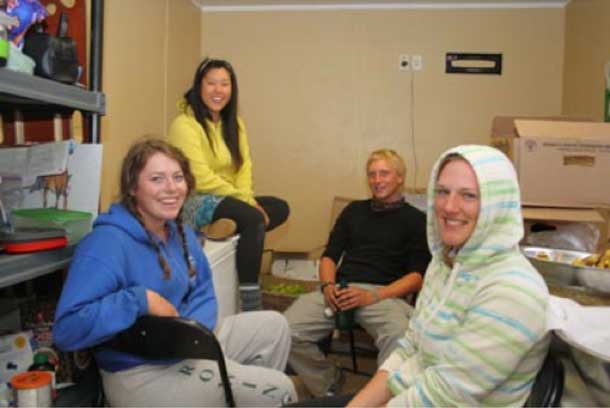

KAKABEKA FALLS – As many companies in Northwestern Ontario are finding out, cultural differences can be a challenge when Aboriginal and non-Aboriginal people are working together, or even when companies are working within traditional lands. Haveman Brothers, a natural resources services company based in Kakabeka Falls, is actively trying to find ways to meet these challenges.
In June, Havemen Brothers hosted a Cultural Sensitivity Gathering for its tree planters working in the Kenogami Forest around the Nakina area. Cindy Crowe from Waabi-ma’iingan (Grey Wolf) Traditional Teaching Lodge coordinated the workshop and Sharing Circle, bringing both cultures together to teach non-Aboriginals a little bit about their history and culture to encourage better understanding.
“My role in life is bringing the cultures together – that is my spiritual role,” Crowe said. “I was invited by Haveman Brothers to share some teaching and hopefully get a dialogue going between Aboriginal culture and the non-Aboriginal culture. I think we were successful in that.”
Bridging the gap between cultures is always an important step, whether it is two companies hoping to do business together or two tree planters working side by side in Northwestern Ontario.
It’s actually a bit of both for Haveman Brothers, a company that works in the forestry and mining industries. Their current tree planting contract with Ne-Daa-Kii-Me-Naan Inc. (Nedaak), the organization responsible for forest management in the Kenogami Forest, required them to maximize the number of Aboriginal planters on their crew.
“One of the mandates for Nedaak is to promote more Aboriginal opportunities,” said Deanna Hoffman, Management Forester with GCK Consulting, working with Nedaak in the Kenogami Forest. Nedaak fulfills that mandate by hiring sub-contractors who employ Aboriginal workers.
Haveman Brothers fit the bill for this project.
Justin Postuma, one of the managers in the region for Haveman Brothers, said that the company already strives to integrate Aboriginals into their workforce, so it was a requirement that they embraced.
“We’ve always placed a significant emphasis in Aboriginal involvement within our company, but we wanted to take it to another level,” he said.
Postuma said that the goal was to have 50% of their tree planters and camp staff to be of Aboriginal descent, and number they achieved. Some tree planters are from reserves 500 kilometres away and are leaving their communities for the first time. Postuma said that Haveman Brothers wanted to do something to help those people feel more comfortable.
“A Cultural Sensitivity Gathering seemed like an obvious choice because it allows cross-cultural exchange for a better understanding between our cultures,” Postuma said.
Albert Angeconeb, a veteran tree planter from Pic Mobert, said that he’s attended similar events in past years, and it does help increase understanding between the cultures. He added that it is a good opportunity for First Nations people to learn about cultures from around the world as well.
“One year we had some people from Africa, and they did their ceremony, singing. It was exciting,” Angeconeb said.
Jennifer Wu, a first-time tree planter from Toronto, said the Cultural Sensitivity Gathering gave her a better understanding and appreciation for Aboriginal culture. Simply working side-by-side with Aboriginal co-workers has helped too.
“We get to experience and learn this culture firsthand, not just people telling us in the school system. Even in the school system though, there’s a lack of Aboriginal and First Nation studies,” Wu said.
Postuma said that the Cultural Sensitivity Gathering and similar initiatives that promote integration aren’t always easy, but they’re worth it in the long run for their business to thrive in Northwestern Ontario.
“It’s a learning curve, but it’s one of the most important ones if you’re going to do business in these traditional areas. Coming in with a bottom-up mentality of communication, understanding, and integration is the only way that you’ll be able to effectively do business in this region.”













